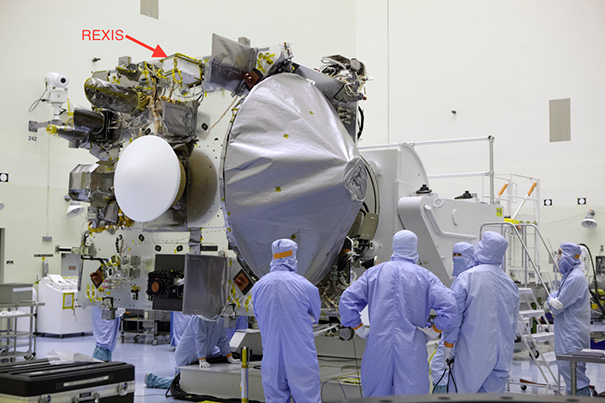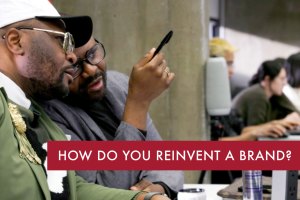Science & Tech
-

A ‘cocktail’ recipe for brain cells
Stem cell biologists discover how to regenerate type damaged in ALS, spinal cord injuries

-

When you do the math, humans still rule
Harvard’s Lauren Williams, a MacArthur ‘genius,’ joins international effort to challenge notions of AI supremacy
-

‘Imagination’
Less like a picture, more like a video game? Cognitive scientist explains how we ‘see’ what isn’t real.
-

Breaking chess’s rating stalemate
Ranking skill can be tricky when the best players draw more than they win, so a Harvard statistician invented a new method

-
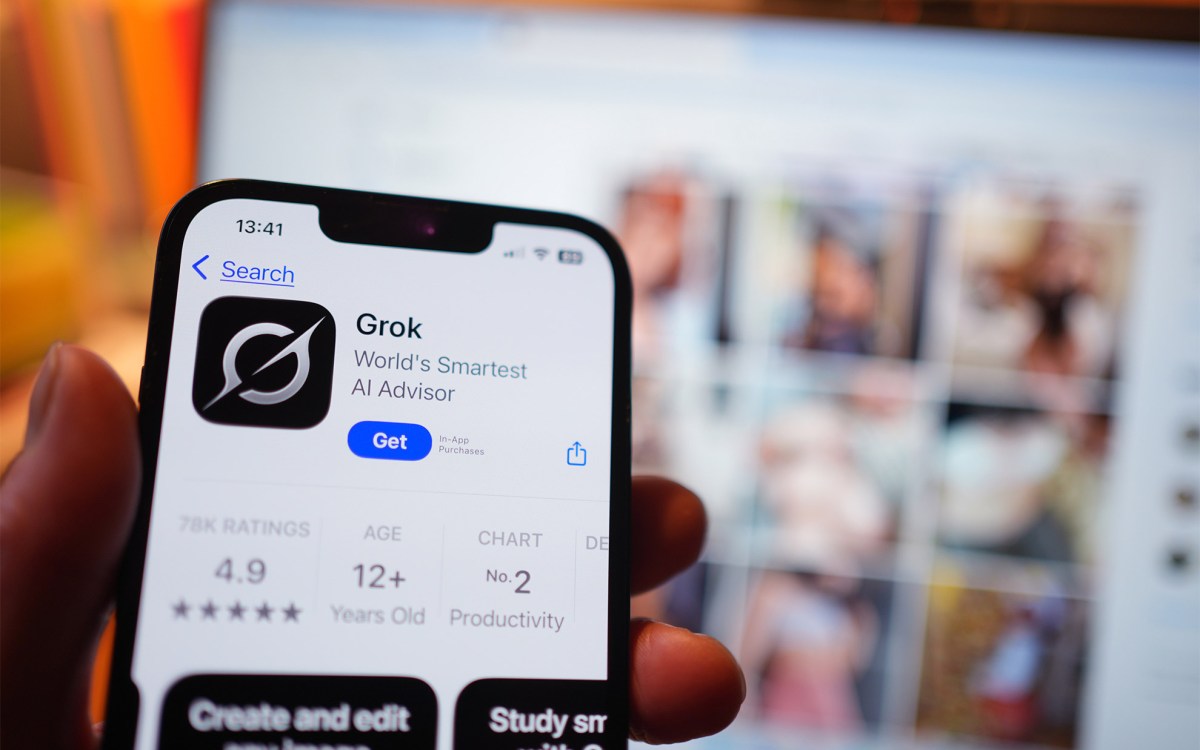
How AI deepfakes have skirted revenge porn laws
Limits unclear when explicit images of individuals look real, but are digitally generated
-
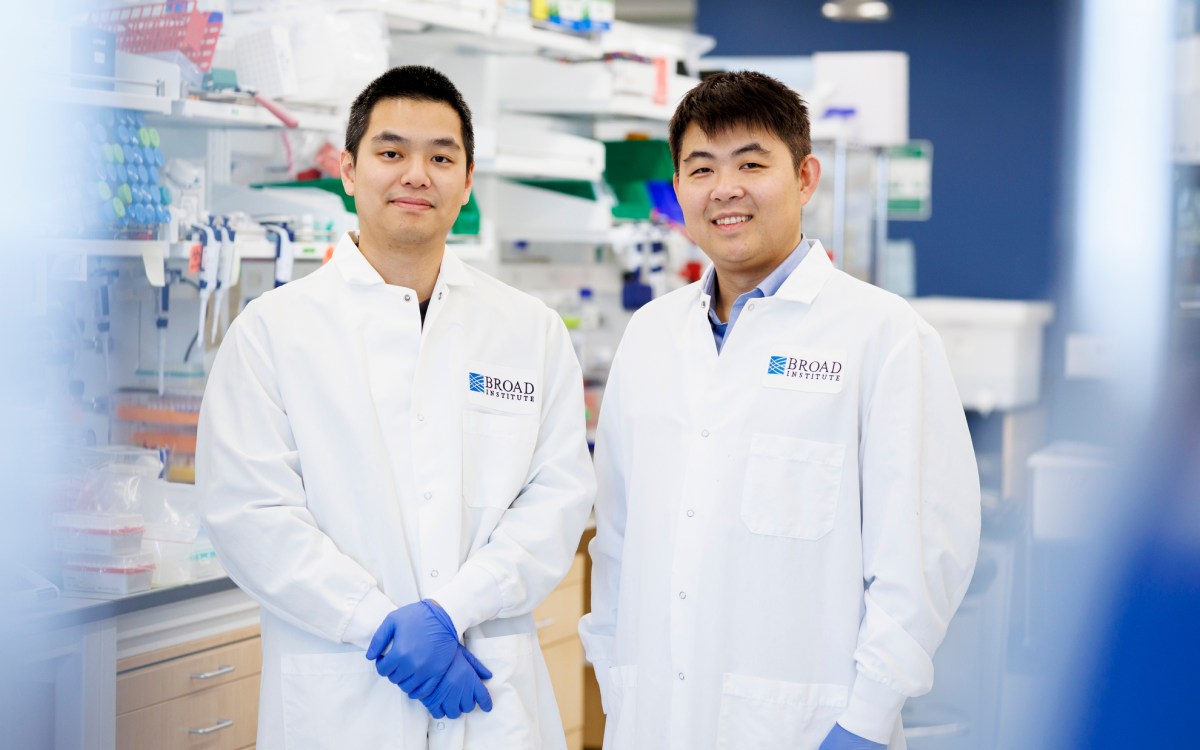
How did that cancer cell become drug-resistant?
Researchers find way to create microscopic archives of gene activity to gain insights into how, why changes happen

-
Diamonds are a lab’s best friend
Using the atomic-scale quantum defects in diamonds known as nitrogen-vacancy centers to detect the magnetic field generated by neural signals, scientists working in the lab of Ronald Walsworth, a faculty member in Harvard’s Center for Brain Science and Physics Department, demonstrated a noninvasive technique that can show the activity of neurons.
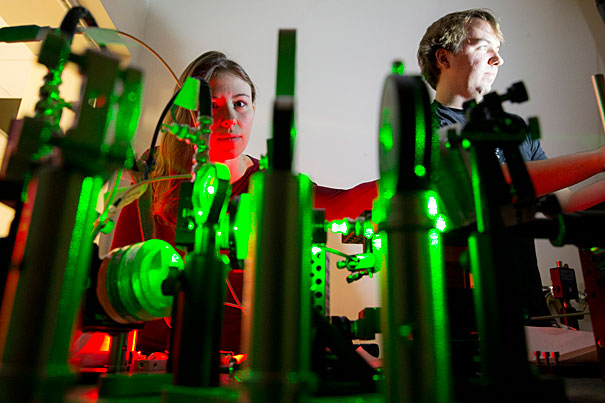
-
The world’s tiniest radio
Researchers from the Harvard John A. Paulson School of Engineering and Applied Sciences have made the world’s smallest radio receiver, built out of an assembly of atomic-scale defects in pink diamonds.
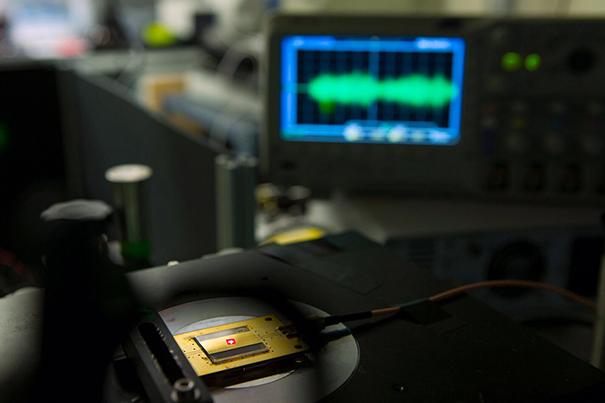
-
The duo who upended intuition
On a visit to Harvard, best-selling author Michael Lewis talked about the deep friendship and pioneering collaboration of famed psychologists Daniel Kahneman and Amos Tversky, whose work created the field of behavioral economics.
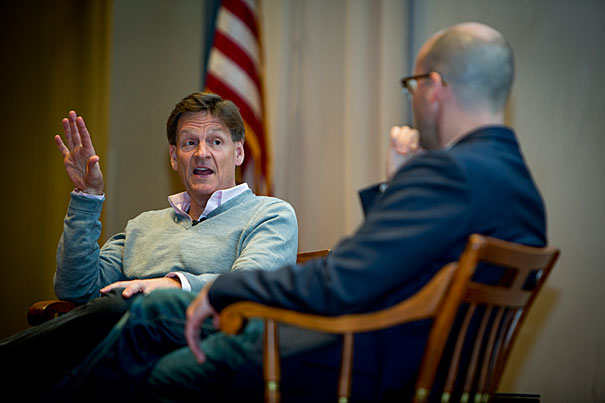
-
The climate change threat to food
Four experts gathered at the Harvard T.H. Chan School of Public Health for a panel concerning the impact of climate change on agriculture and the global food system, with an emphasis on the United States and Africa, and a nod toward what the incoming Trump administration might do about the issue.
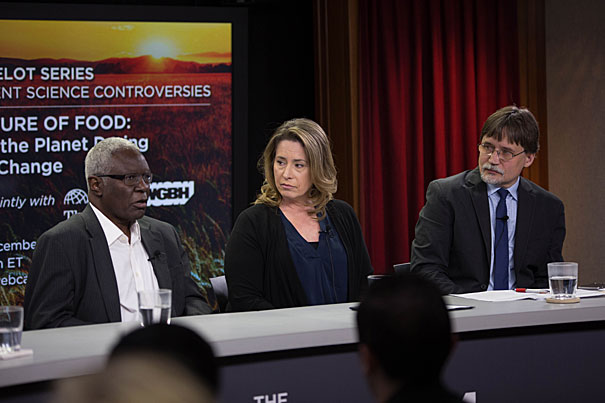
-
Harvard students, meet the Stone Age
Students taking part in a new freshman seminar class learn to appreciate the sophistication of Neanderthals by manufacturing their own stone tools from scratch.
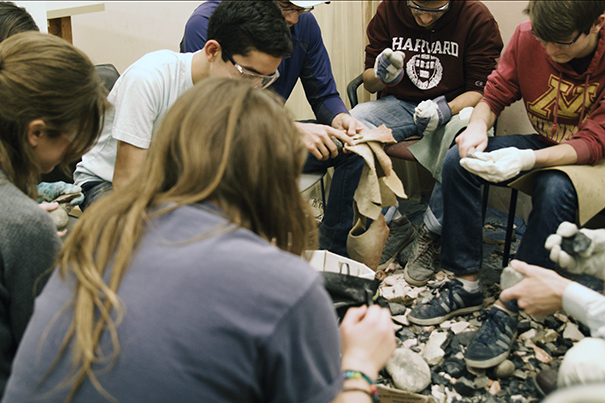
-
Mitigating the risk of geoengineering
To halt the rise of global temperatures, Harvard researchers are looking at solar geoengineering, which would inject light-reflecting sulfate aerosols into the stratosphere to cool the planet.
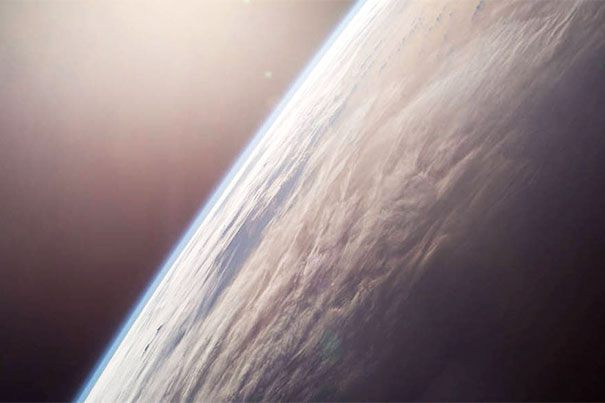
-
Curbing carbon on campus
Harvard University achieves ambitious climate goal set in 2008.
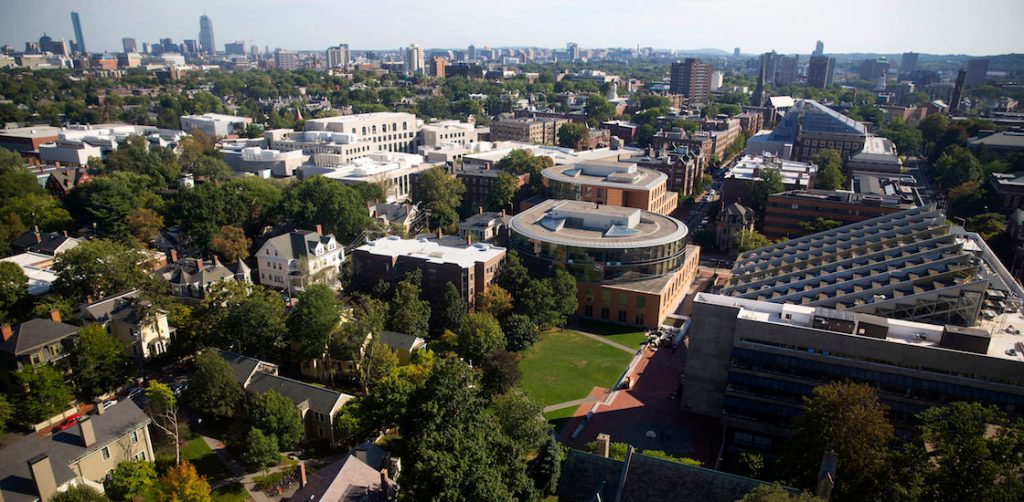
-
For bigger data, more storage
With big data becoming routine and applications penetrating even areas not traditionally thought of as data-heavy, Harvard is part of a multi-university collaboration designed to better store and provide faster access to the enormous data sets increasingly common in research into genomics, particle physics, and a host of other fields.
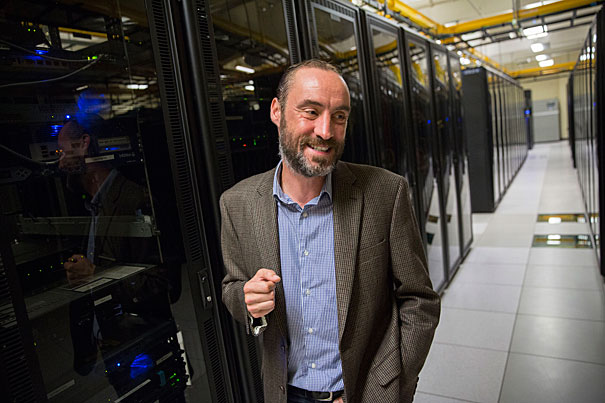
-
Ex-EPA official sees narrow openings for climate progress
In a Harvard talk, ex-EPA official Robert Perciasepe outlined some narrow openings for bipartisanship on environmental issues.
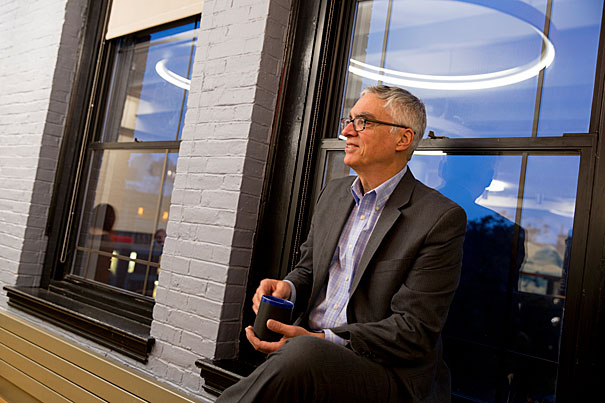
-
Global concerns on climate change
Harvard experts gather to discuss climate change in all its complexity, and share some surprising views.
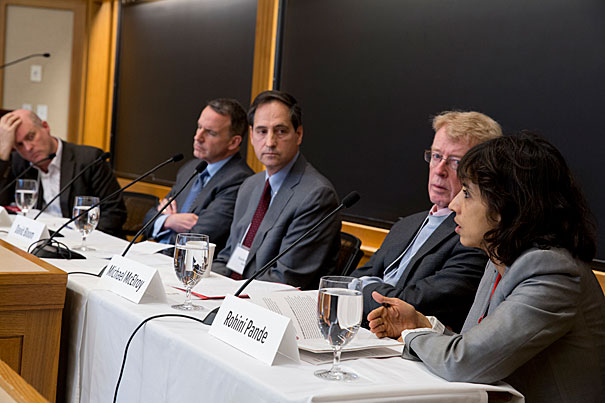
-
What’s next for climate change policy
Harvard environmental experts looking ahead to a Trump administration see trouble for President Obama’s Clean Power Plan and U.S. international climate action, but add that the nation’s environmental protection regulatory framework would be difficult to dismantle, and there may be hope for new approaches to addressing environmental ills.
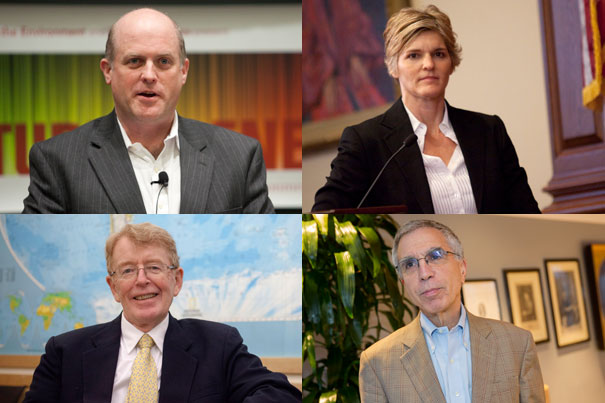
-
Human health risks from hydroelectric projects
Harvard researchers found 90 percent of new or proposed hydroelectric power plants will increase the concentration of toxic methylmercury in the food web near indigenous communities in Canada.
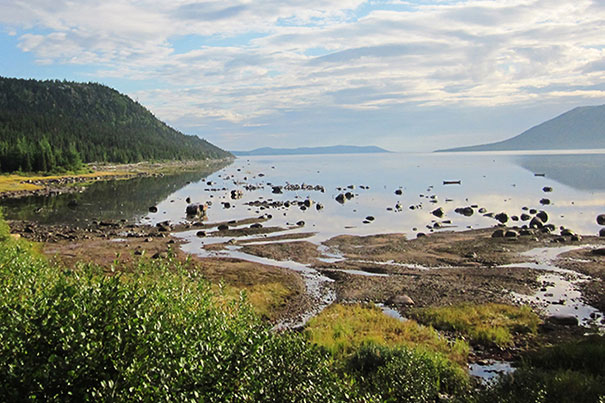
-
Fleeing climate change
The Gazette interviewed Robin Bronen, a human rights attorney and a senior research scientist at the University of Alaska, Fairbanks, on climate change displacement.

-
Making the ultimate darkness visible
University of Arizona physicist Dimitrios Psaltis has devoted his Radcliffe fellowship to black hole imaging linked to the Event Horizon Telescope project.
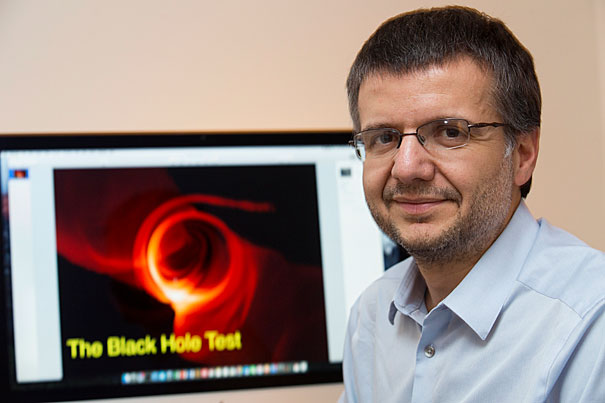
-
Melting ice, changing world
Melting Arctic ice is opening the Northwest Passage, just a symptom of the accelerating warming in the Arctic and around the globe, speakers at a Radcliffe symposium on the oceans said.
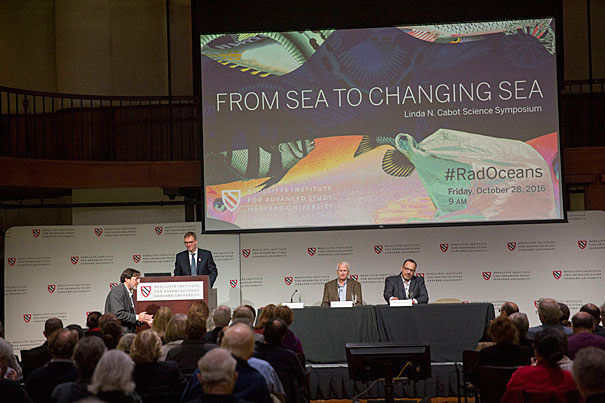
-
The shifting landscape in biosocial science
During Tanner Lectures, Professor Dorothy E. Roberts of the University of Pennsylvania Law School, will explain how society leaned on flawed judgments about race.
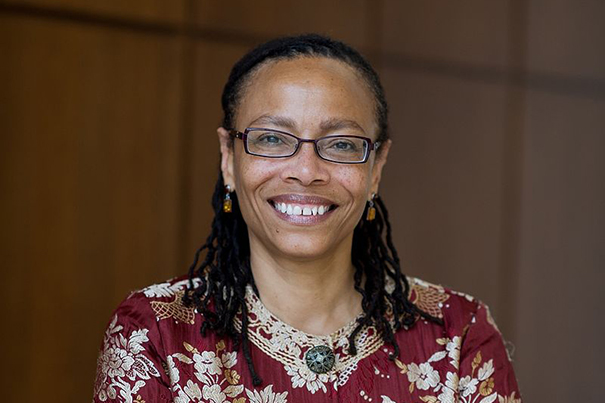
-
As Americans vote, will hackers pounce?
Panelists at the Kennedy School discussed the possibility of hackers targeting the U.S. vote.
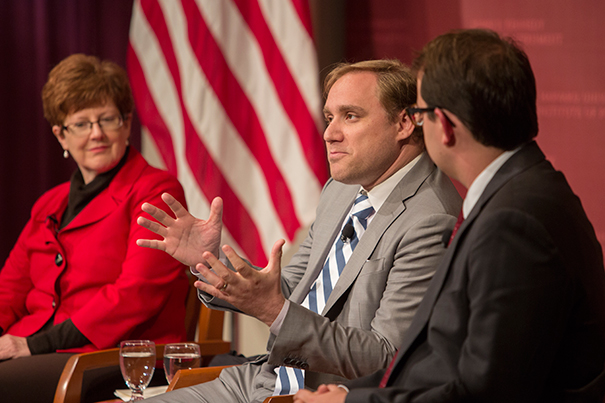
-
Giving ‘good’ a rigorous inspection
Harvard scholars Joshua Greene and Steven Pinker were joined by Princeton philosopher Peter Singer in a conversation examining how to be moral — and happy.
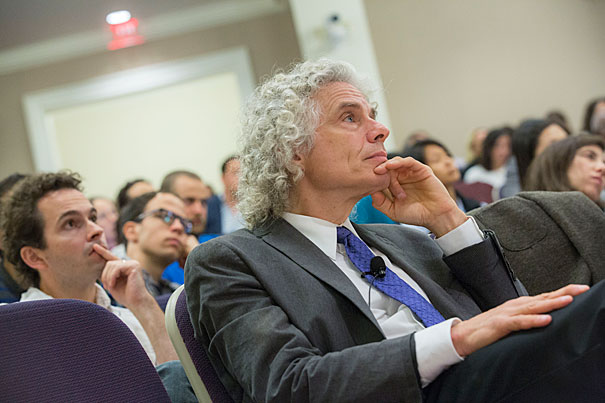
-
Science, meet YouTube
Harvard graduate student Molly Edwards is the creator and host of “Science IRL (In Real Life),” a YouTube channel she launched more than a year ago while working as a lab technician at New York University. The show is dedicated to taking viewers inside labs for an up-close-and-personal view of the day-to-day work of scientists.
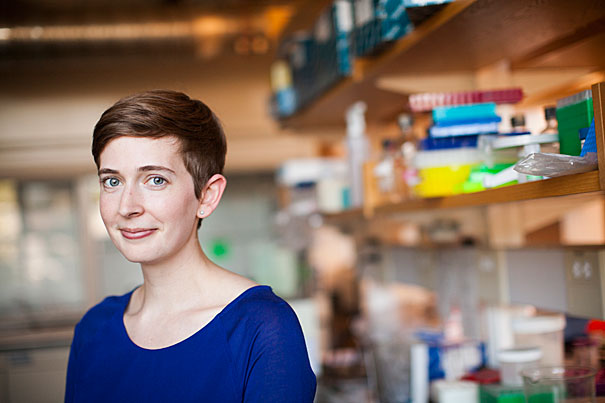
-
They ponder the universe
A Harvard research summer at CERN in Switzerland can lead to hard work, sightseeing, and, for some, a lifetime in physics.
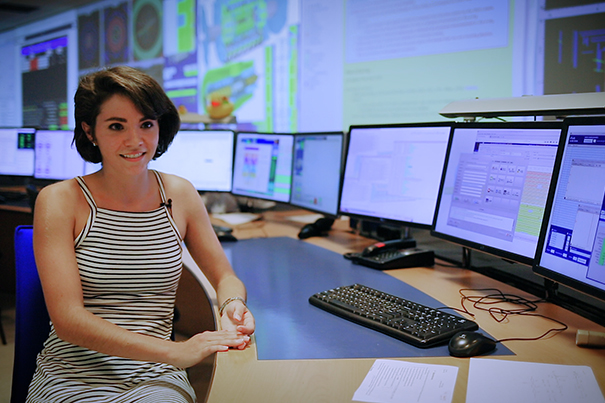
-
Harvard strengthens ‘living laboratory’ to help mitigate climate impact
A reinvigorated “campus as a living laboratory” initiative includes two new, fully funded projects for that will tackle real-world challenges on campus or in the community, and lead to the practical application of emerging technologies or strategies regarding climate change.
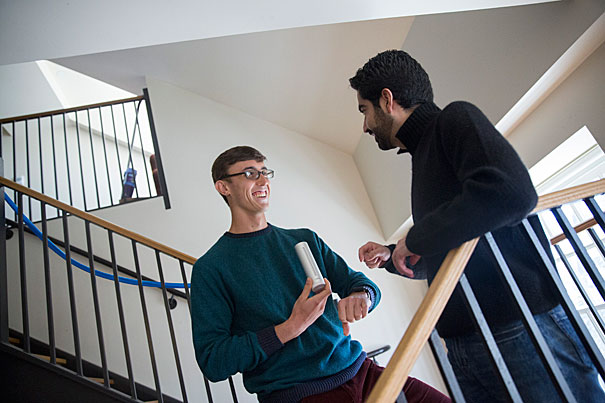
-
A way forward on climate
Michael McElroy, Gilbert Butler Professor of Environmental Studies, talks about his new book, “Energy and Climate: Vision for the Future.”
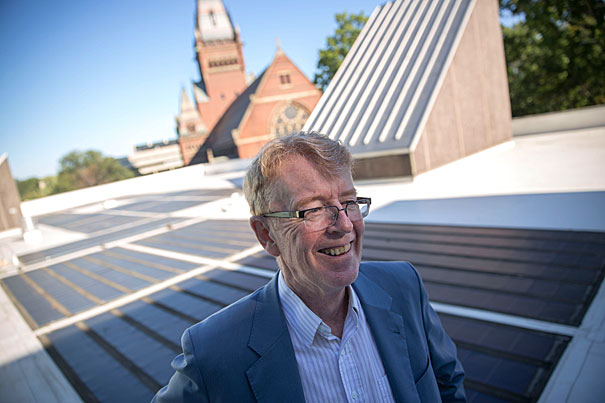
-
Now arriving: Internet of Things
The Internet of Things is growing ever more sophisticated, enabling everything from smart cities to automatic appliances. A Harvard ethicist says we should think not just about what we can do, but what we should do.
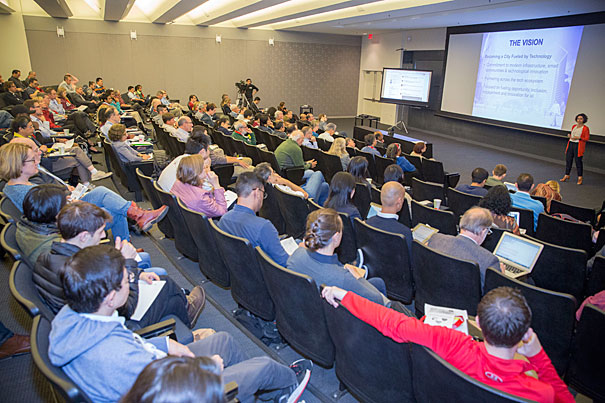
-
Worlds of promise
The future of visual and augmented reality was the theme of a HUBweek event that attracted students, scientists, educators, entrepreneurs, and software developers for an afternoon of demonstrations and discussions.

-
A hot idea for conserving energy
Aldís Elfarsdóttir ’18 didn’t like the energy-wasting implications of cracking the window to lower the temperature in her Eliot House room. So she and two recent grads have launched a temperature data-gathering project to help the House conserve wasted energy.
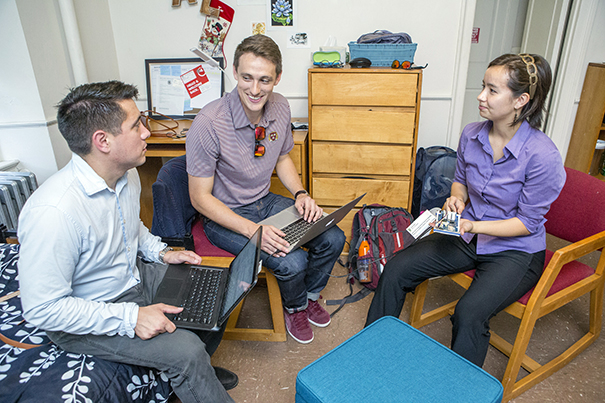
-
Why lose the headphone jack?
Harvard Engineering Professor Woodward Yang discusses Apple’s decision to get rid of the headphone jack.

-
Strong case for seagrass
New findings on seagrass reinforce the need to direct research where biodiversity is most at risk, says Harvard Herbaria fellow Barnabas Daru.
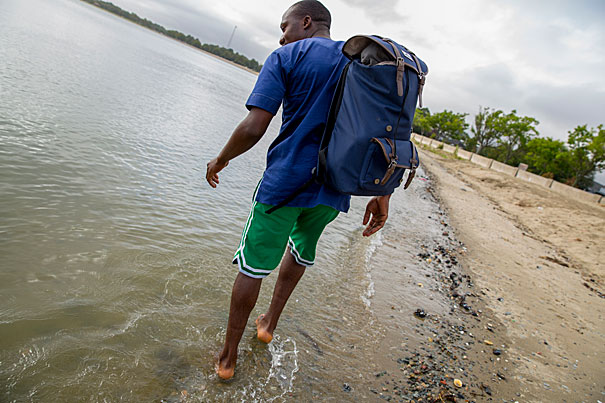
-
Testing the test questions
A group of researchers at the Harvard-Smithsonian Center for Astrophysics (CfA) has found a way for schools, professors, textbook publishers, and educational researchers to check the quality of their test questions that turns out to be both fast and cheap. It invokes the power of crowdsourcing.
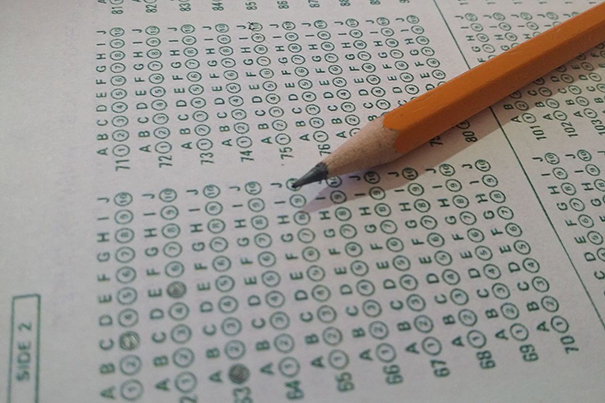
-
What artificial intelligence will look like in 2030
“Artificial Intelligence and Life in 2030” is the first product of the One Hundred Year Study on Artificial Intelligence (AI100).
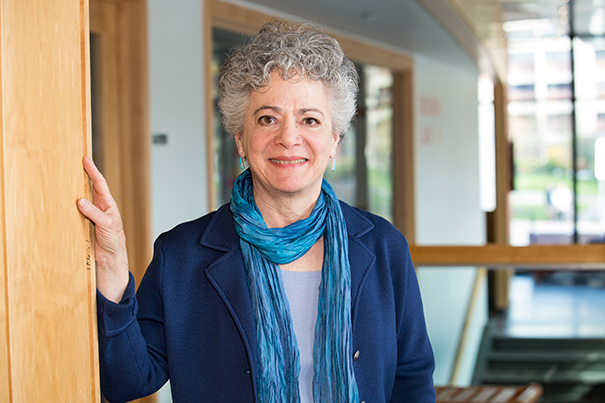
-
Asteroid mission will carry student X-ray experiment
At 7:05 p.m. (EDT) today, NASA plans to launch a spacecraft to a near-Earth asteroid named Bennu. Among that spacecraft’s five instruments is a student experiment that will use X-rays to help determine Bennu’s surface composition.
